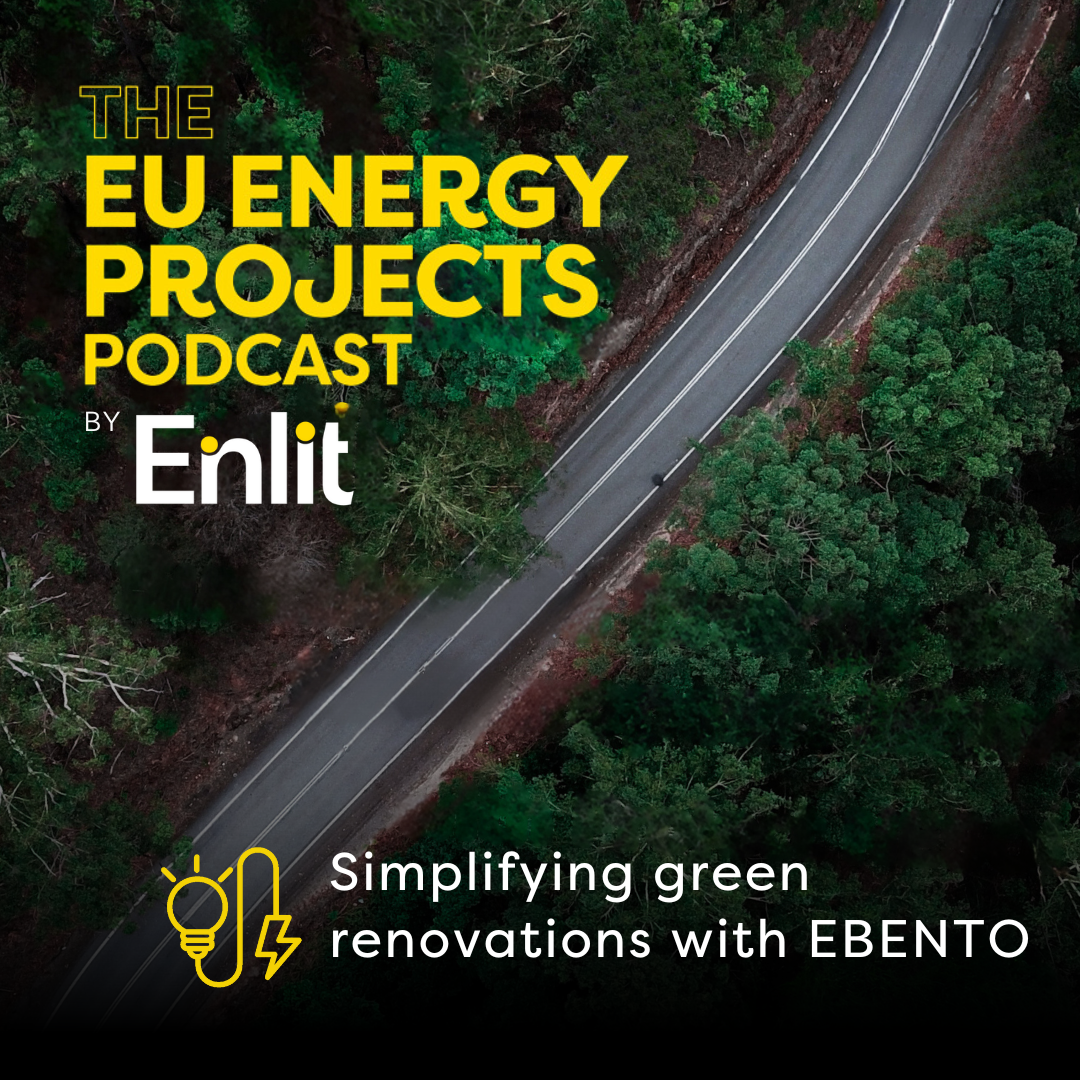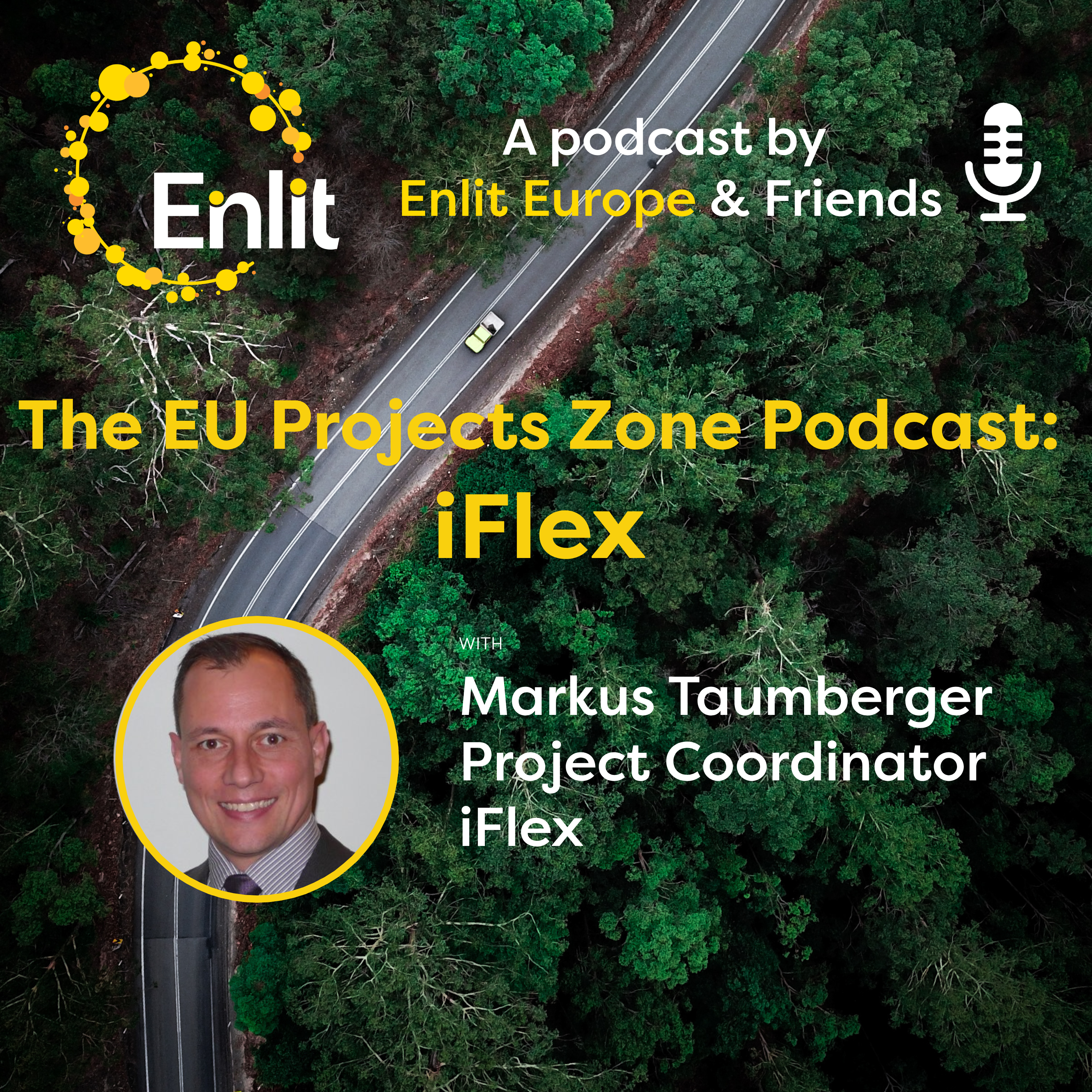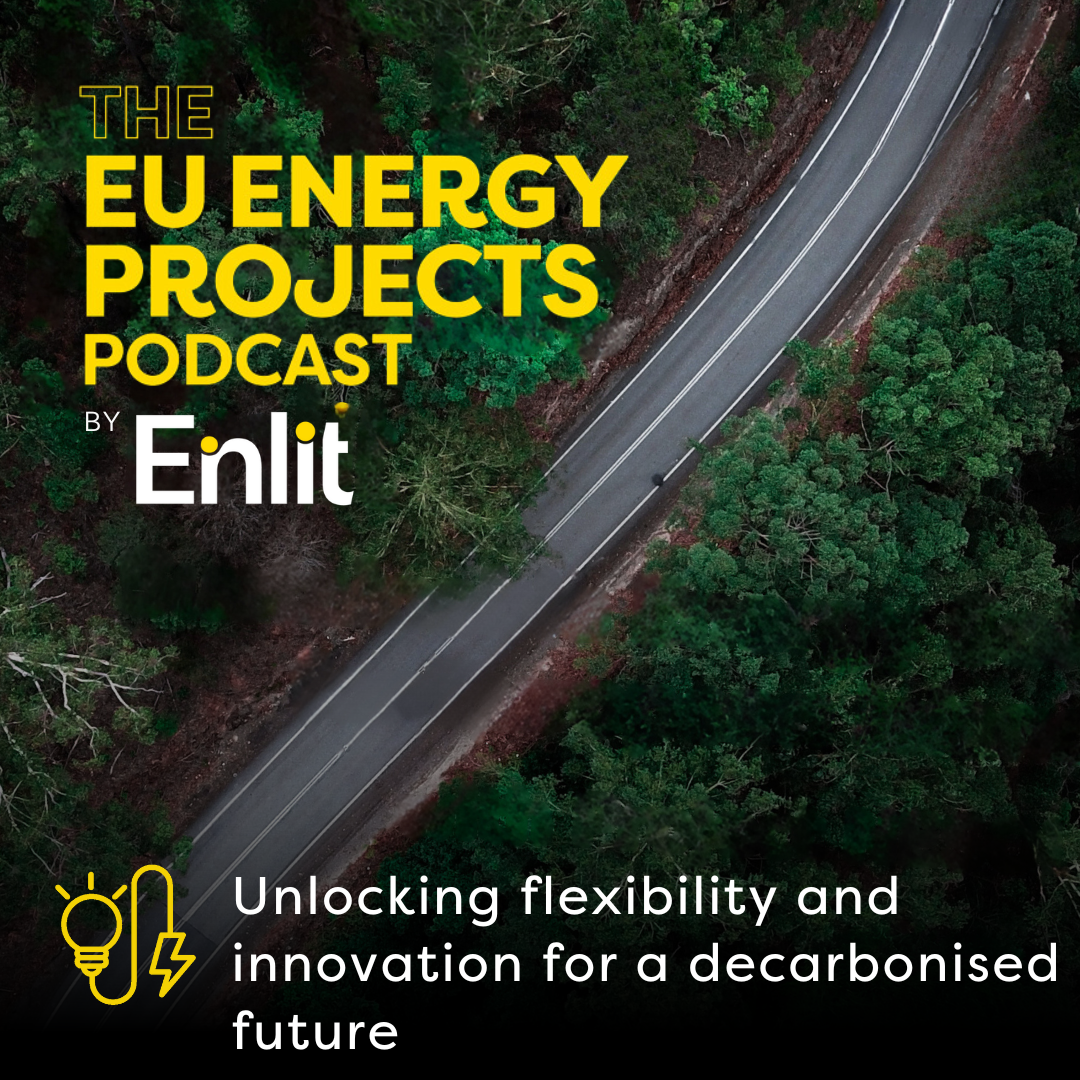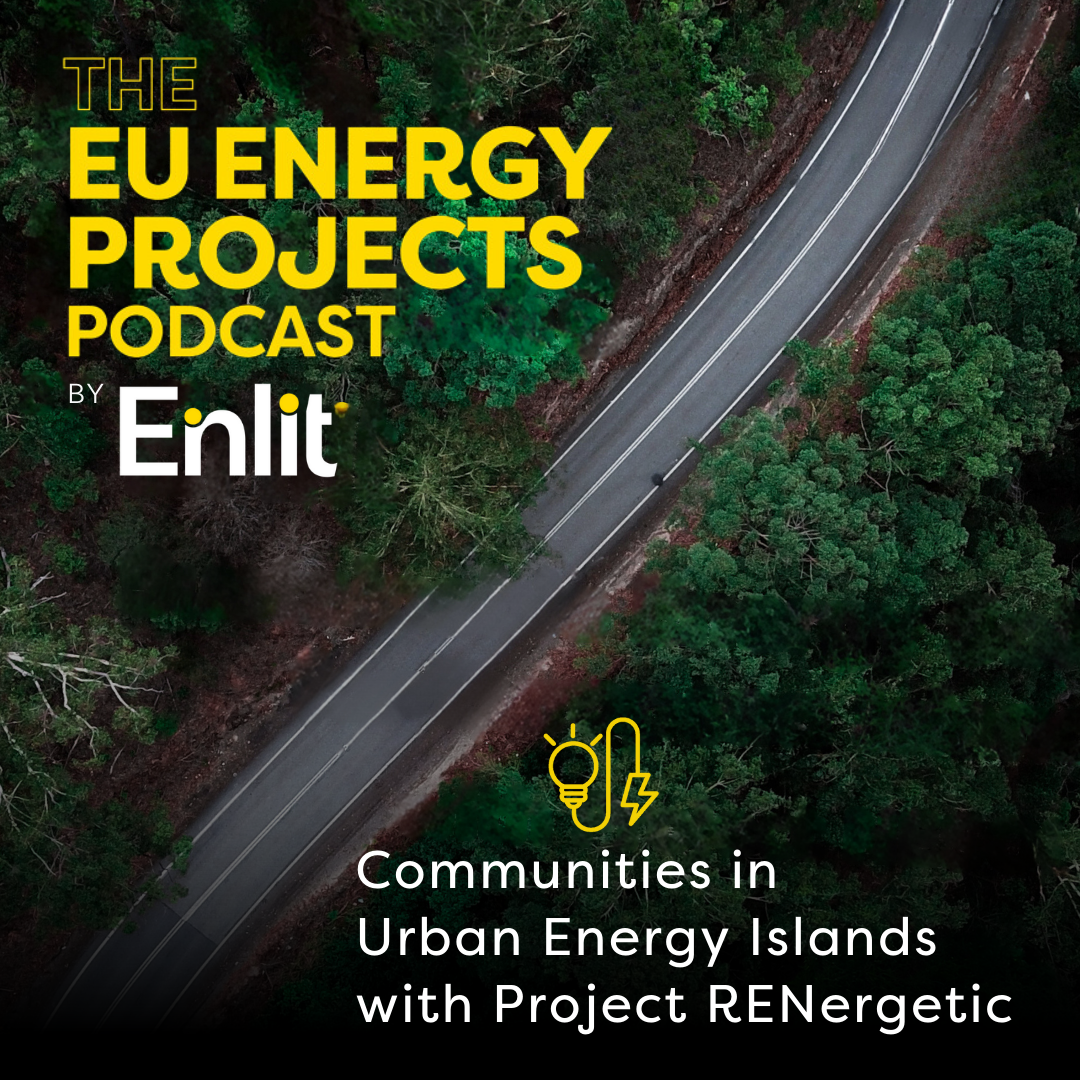Episode Transcript
[00:00:10] Speaker A: Welcome to the EU Energy Projects Podcast, a podcast series from Enlida and France focusing on the clean energy transition for the European Union and the EU Commission funded energy projects that will help us achieve it. My name is Aretid Daradimu. I. I am the editor of the EU Energy Projects podcast and your host.
The EU funded IBENTO project aims to enhance energy efficiency in buildings. It does so by developing an integrated platform for all actors involved to better coordinate and manage energy performance contracting, bringing together the needs from all actors in enhancing the building stock.
My colleague Ross Hasdy will be your guest host for today and he's joined by project Coordinator Alejandra del Valle to better understand the mission of IBENTO and the plan to achieve it.
[00:01:14] Speaker B: Alejander, welcome to Inlet on the Road and welcome to the EU Projects podcast.
[00:01:20] Speaker C: Thank you very much, Ross.
[00:01:21] Speaker B: The Ebento project aims to provide a framework for energy performance guarantees and contracts. What does that mean?
[00:01:31] Speaker C: Well, you know that every renovation project starts with an agreement between the neighborhood, community and other stakeholders. This is usually a very long process that it is not necessarily shorter because the building is small.
So this tool, Evento, tries to aggregate demand, offer a financial solution, fostering the decision making process for a renovation.
You know, the problem is the complexity of the energy performance contracts. This together with the lack of information difficult very much the neighborhoods to select the adequate suitable partners for these renovation projects. So Evento, with the innovation Performance contracts module, tried to innovate in the business models and it identifies the most relevant KPIs and also all the critical considerations in these new NPCs. So it makes it easier for the ESCOs and the ownerships to make these contracts an agreement.
[00:02:40] Speaker B: So the benefits for both sides, both the building owners and the energy service companies.
[00:02:45] Speaker C: Yeah, yeah. And also for the construction companies.
[00:02:48] Speaker B: Okay, so you've got four demonstration sites. Talk to us about the diversity of these locations.
[00:02:54] Speaker C: Yeah, we have selected four different pilots. One is in Valencia, we have another one in Estonia in Tallinn. Athens and Manchester is the 4 location. And the diversity of these locations enhances the overall goals of the project. In all of them there are different cultural attitudes, social behaviors and engagement patterns. These pilot sites have varying levels of digital infrastructure. So, for example, in Tallinn and Athens, the contrast ensures that eventual is tested in heterogeneous technological environments. There are demographic, socioeconomic and other differences very relevant between them. Like the urban planning policies, they are very relevant as well. The differences between them, these different legal and governance policies ensures that EVENTO will be scalable after we taste the platform in all of them.
[00:03:53] Speaker B: One of the reasons we came to Valencia was because it's the green capital of Europe in 2024.
Obviously energy efficient buildings are greener buildings.
[00:04:02] Speaker C: Yes. And Evento was selected, I think, because it supports directly the ambitions of the Valencia Green Capital Award that we gained last year. So we here have a pilot site, as I mentioned before, it is conducted by Valencia Climayenergia, that is a municipal foundation of the Valencia City Council. And our partners have selected two buildings in Valencia and there they have made an agreement with the neighbors. They have installed several IoT devices in 24 drillings. So we have made measurements and monitoring of the energy consumption and also the comforts in terms of temperature and humidity in a pre and a post renovation phase of these buildings. All this data get to the One Stop Shop and it evaluates the performance of the comfort, generally speaking, in these buildings.
[00:05:02] Speaker B: So the key component of this project is citizen engagement. How does Ubento empower citizens to make more informed energy efficiency decisions?
[00:05:14] Speaker C: Yes, citizens and stakeholders have been key players from the very beginning of the design of the Evento platform. We have tried to enhance as much as possible the users participation in all the process. We have developed two different formats, participatory workshops and also focus groups. Valencia pilot for example, we made two focus group at the very beginning of the project and also one participatory workshop with potential users, with professionals and also with the house owners.
[00:05:48] Speaker A: Did you know that ENLIT has another podcast? The Energy Transitions Podcast is a broad ranging bi weekly podcast about the people accelerating the energy transition in Europe and beyond. You can find it on Spotify, Apple or wherever you enjoy your podcast.
[00:06:10] Speaker B: So we've chatted earlier about your One Stop Shop platform. What does it play in this process?
[00:06:16] Speaker C: The One Stop Shop platform is a software tool that has three different modules in one module. All the stakeholders I mentioned can prepare energy performance contact in this easy way. I already explained. And then there is also a simulation module in which once the neighbors and the constructors have agreed on a renovation project, the tool can provide you a simulation of the renovation you are going to make in the building. So it gives you several options and the owners can choose the better renovation project for them and the more efficient one. Okay. And it has also a monitoring model. This monitoring model is directly connected with the IoT devices that are installed in every dwelling and it provides the users real time measurements of their comfort.
[00:07:12] Speaker B: The theory sounds great, but implementation is a whole different story. Let's chat about the challenges that you've had and that you anticipate. What are the barriers for widespread adoption of these innovative technologies?
[00:07:26] Speaker C: We know that we face several obstacles. I think that the most important obstacle we face is maybe the technological differences between the different pilot sites and the different cities. Integration, IoT infrastructure and smart city initiatives. They are different and they could slow the adoption of these new and innovative technologies. There are also diverse legal frameworks and other socioeconomic and cultural factors and also financial constraints that can make users receive the adoption of the platform. Because maybe they have a sense of complexity or maybe some ecstasy as well. We try to avoid and to plan that these obstacles don't happen by making very deep risk assessment all during the crisis. We have a very defined methodology, so we try to ensure the alignment of the local governments and event organizers with the platform from the beginning.
[00:08:40] Speaker B: What about regulation and data privacy? Is GDPR an issue?
[00:08:45] Speaker C: Yeah, of course. Because although there is European framework, every country has its own policies and also the use of AI. It's an ethical barrier in most of. So it will also be an obstacle, a hurdle.
[00:09:01] Speaker B: What about the long term implications for Evento? How do the outcomes of the project help energy efficiency in buildings in the future?
[00:09:10] Speaker C: We have some short term goals and other long term perspectives. Evento is a very radically new tool. I would say so it integrates demand response services in this new MPC contracts. So in a short term we plan to expand the impact of bento. Also improve the communication pathways and increase the market actors, especially involving SMEs. In this kind of project, we plan to enhance consumer trust. This is a very big challenge and also engage as much stakeholders as possible. And in the long term we think we can contribute to make a more energy efficient building of stock in Europe. And for this we need to have an accurate understanding of the building's performance. And that's what we are working on.
[00:10:06] Speaker B: What about collaboration? Are there other projects that you're working with who have similar objectives?
[00:10:12] Speaker C: Yes, we are very active with two European initiatives. One is the Build for People partnership which we are part of. And Evento is very aligned with the mission of this partnership that is to accelerate people centric innovation. And we collaborate with two projects, the Step up project and the Nebula project as well. This Nebula project, for example, it's focused in creating a network of innovators to accelerate energy efficiency transformation in Europe.
[00:10:47] Speaker B: The goal here is European wide implementation and solutions. Let's talk about the market space and do you see an environment where these collaborative products become competitive for that single market space?
[00:10:59] Speaker C: They might seem competitive, but there are important differences between all the solutions that we are all developing.
I think that the way in the future is to integrate them because they are focused in different markets and have slightly differences. But so for me, the better solution would be to integrate them and provide a unique solution for improving energy efficiency in the building stock.
[00:11:31] Speaker B: Alejandra, thank you so much for your insights today. For more insights, be sure to subscribe to the EU Energy Projects Podcast.
[00:11:40] Speaker A: You've been listening to the EU Energy Projects Podcast, a podcast brought to you by Enlit and France. You can find us on Spotify, Apple and the Enlit World website. Just hit subscribe and you can access our other episodes too. I'm Aletti Daradimo. Thank you for joining us.




